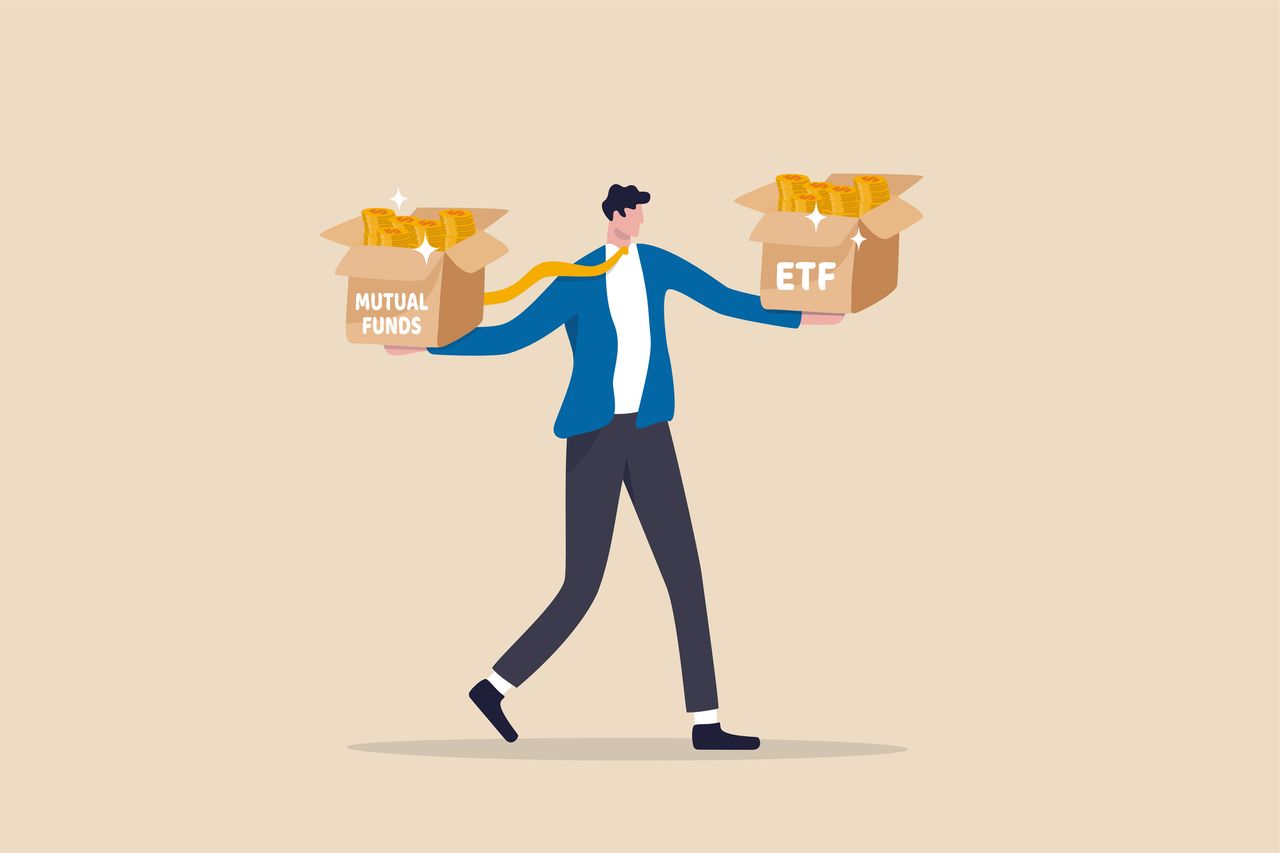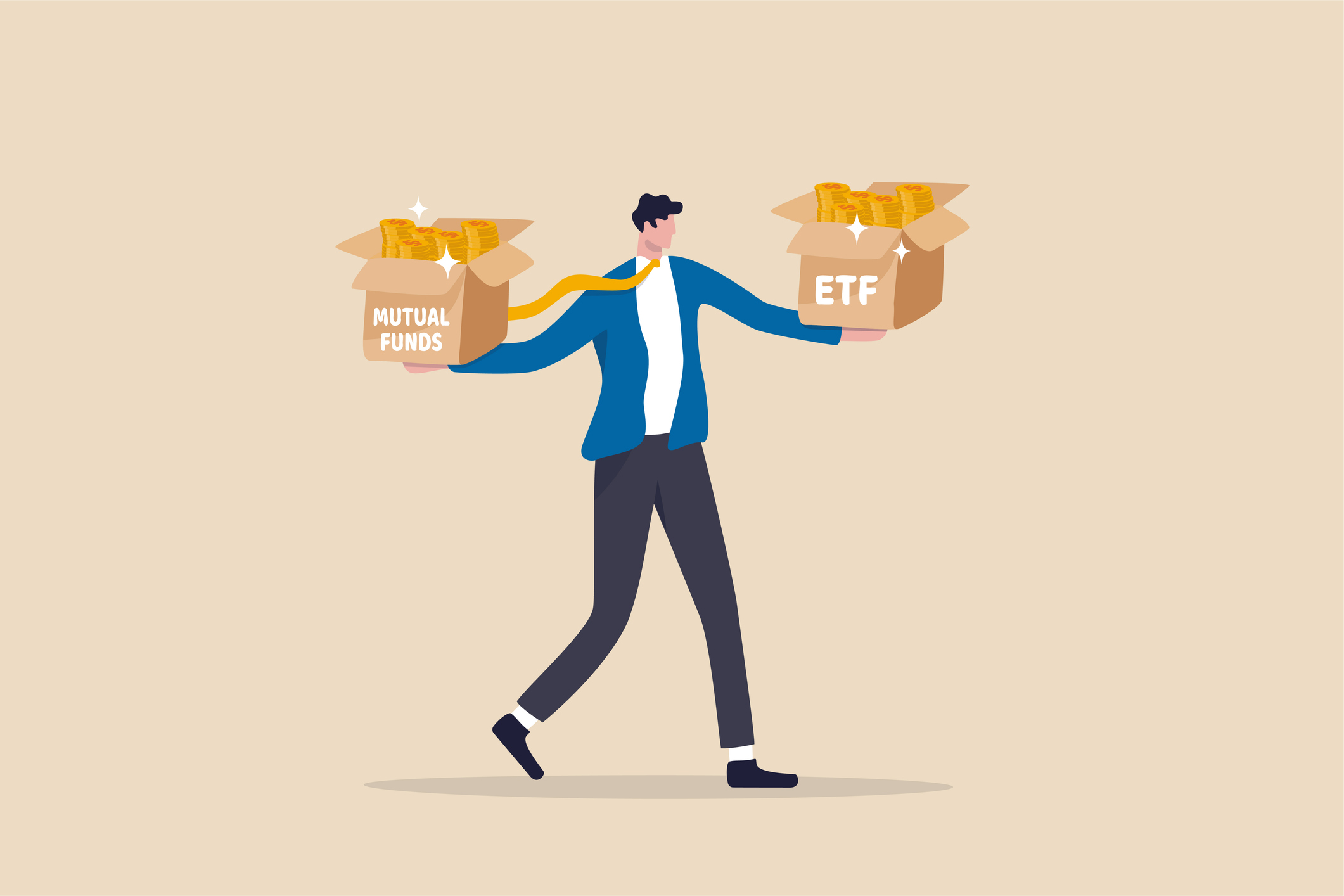
The Securities and Exchange Commission (SEC) is on the verge of allowing major changes to the way exchange-traded funds (ETFs) and traditional mutual funds are structured. Specifically, an SEC ruling could allow dozens of asset managers to offer existing mutual funds as ETF share classes.
That might sound like technical minutiae … a distinction without a difference. After all, investors already have thousands of ETFs and mutual funds to choose from. What difference would it make if the ETFs themselves were simply a share class of a mutual fund?
Some of this comes down to taxes. There are very real differences in the ways that ETFs and mutual funds are taxed, so the SEC’s decision – expected to come down within the next several months – will matter a lot for most folks investing in a regular, taxable brokerage account.
Sign up for Kiplinger’s Free E-Newsletters
Profit and prosper with the best of expert advice on investing, taxes, retirement, personal finance and more – straight to your e-mail.
Profit and prosper with the best of expert advice – straight to your e-mail.
It’s also a potential win for fund managers, as it opens their existing strategies to a broader pool of investors.
But are there benefits for investors? And are there any drawbacks that investors should be aware of?
Let’s take a look.
What is the SEC considering when it comes to mutual funds and ETFs?
It’s normal for mutual funds to have multiple share classes that vary based on fees, sales loads or account minimums.
Back in the early 2000s, Vanguard patented a clever setup that let an exchange-traded fund be just another share class of an existing mutual fund.
This meant one mutual fund could offer both traditional mutual fund shares and ETF shares that were both backed by the same underlying portfolio, management and performance record.
That patent expired in 2023, leading to a flood of requests from other fund managers. To date, more than 60 have petitioned the SEC for regulatory relief that will allow them to issue ETFs as share classes of existing mutual funds.
The SEC doesn’t have a reputation for moving quickly. As with most government regulators, there is a process, and that process is often slow and bureaucratic.
We’re starting to see movement, though. Back in March, then-Acting SEC Chairman Mark Uyeda instructed staff to prioritize reviewing these petitions.
And given the Trump administration’s preference for deregulation, the likelihood is that a decision will happen within the next few months that will open the floodgates for ETF share classes of existing mutual funds.
Why do mutual funds want ETF share classes?
There are plenty of reasons for fund companies to petition the SEC to allow for ETF share classes of mutual funds.
To start, this allows them to keep their track record of fund performance, which in some cases can stretch back decades, as the ETF would be considered part of the existing fund as opposed to a new one.
This would also be true of existing ETFs that wanted to offer mutual funds for 401(k) plans. As things stand now, an ETF with a great long-term performance wouldn’t be able to mention the track record if they an identical strategy was created in a mutual fund format.
It’s also potentially cheaper and faster to create a new share class than to to launch an entirely new product.
But mostly, it’s about taxes.
Mutual funds and ETFs are taxed differently because of how investor flows are handled.
In a mutual fund, when investors redeem shares, the fund often has to sell securities to raise cash. Those sales can generate realized capital gains, which must be distributed to all shareholders – whether they sold shares or not – creating a potential tax bill for all fund holders.
I sell my shares, and you get stuck with the tax bill. It’s not exactly an ideal situation.
By contrast, ETFs use the in-kind creation/redemption process. Large institutional investors can exchange baskets of the underlying stocks for ETF shares (and vice versa) without the fund selling holdings.
This allows ETFs to get rid of appreciated securities without triggering taxable gains inside the portfolio and soaking their investors.
Because Vanguard had ETFs as share classes of its existing mutual funds, its mutual funds were able to piggyback on the ETFs’ tax advantages. The Vanguard 500 Index Fund (VFIAX), for instance, hasn’t paid a capital gains distribution since 2003.
Why this matters to investors
It’s always nice to have options at your disposal, and having an ETF version of your favorite mutual funds isn’t a bad thing.
Existing investors in mutual funds might also get a tax break. As we saw in the case of the Vanguard S&P 500 index fund, the mutual fund was able to shift would-be capital gains into its ETF share class and avoid making capital gains distributions.
Other mutual funds could potentially be able to do the same, though it should be mentioned that having an ETF structure of an existing fund doesn’t guarantee that capital gains distributions will be eliminated.
If a fund manager trades aggressively to the extent that the gains cannot be offset by in-kind redemptions, there may still be taxable distributions to deal with.
Of course, it can also go the other way. Just as mutual fund investors may benefit from ETF tax efficiency, exchange-traded fund investors could end up dealing with mutual fund tax inefficiency if the assets are comingled.
This would be a particular risk in cases where the ETF share class was a relatively small part of the overall fund and the fund generated substantial realized capital gains.
In a tax-advantaged account such as an IRA or 401(k), none of this is a major concern, of course. But a tax-paying investor should consider this, particularly for a new ETF share class of a large existing mutual fund that does a lot of active trading.

